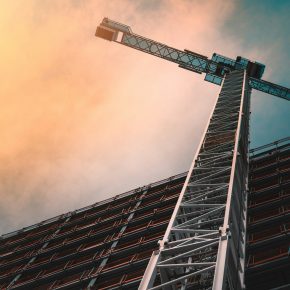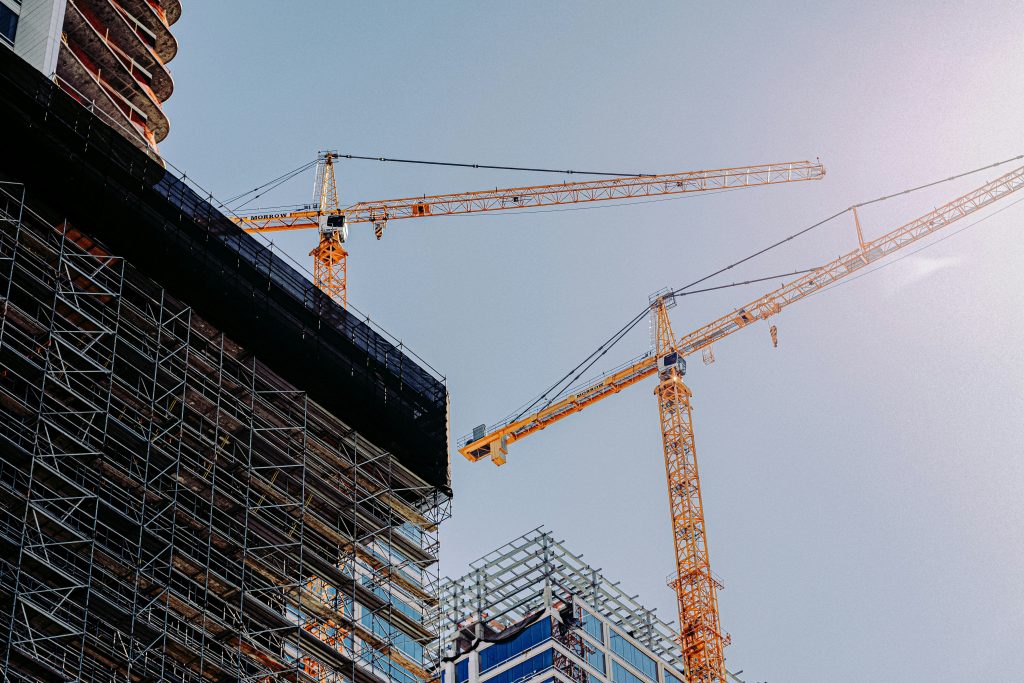
GUEST ARTICLE: Construction’s letter to next Government
The General Election campaign is well underway. However construction-specific policy, beyond building more homes, has been noticeably light.
As a sector that has pulled itself up by the bootstraps over the past decade, many industry players will be looking to the new administration to support the sector, as it continues to battle multiple socio-economic pressures.
Here are some hot takes on the hopes, fears, ambitions, and aspirations across the built environment…

Allan Wilen, Economics Director, Glenigan
“The construction sector has experienced a steady decline over the past couple of years, struggling to return to pre-COVID levels. Whilst there are various socioeconomic factors at play, a lack of long-term policy vision and major infrastructure decisions made on the hoof, including major project cancellations or pauses, are partly responsible. Nowhere is this more evident than in the revolving doors of the Department of Business and Trade and DLUHC where we’ve seen minister-after-minister covering the construction and housebuilding briefs since this Government came to office.
“I hope the next administration, whichever party it is, puts MPs in these posts and keeps them there to ensure they understand the challenges facing the sector, and the consistency to deliver the crucial reforms the sector needs from digital transformation to chronic labour shortages.
“Not only that we need to raise these office’s status from a junior position to one that attends the Cabinet at the very least. For one of the country’s most important industries it does feel like we’re treated as the poor cousin, elevating the status of the responsible politician would go some way to boost confidence and showing that the next Government means business when it comes to UK construction’s future.”
Adrian Attwood, Executive Director, DBR (London) Ltd
“UK construction faces a skills shortage of unprecedented scale. Whoever comes into office next month needs to offer a clear vision of how we plug this growing, problematic gap. With personnel numbers drastically reduced by Brexit, then the Pandemic, a lack of home-grown talent persists.
“Current initiatives have failed to have much impact and we’re not seeing nearly enough school leavers choosing construction as a career path, particularly in specialist professions such as the heritage niche we occupy.
“The next Government has a big mountain to climb, perhaps requiring a root and branch reform of our education system, and a more direct awareness raising campaign around the virtues and benefits of a life in construction. We need to show as many young people as possible why our sector offers plenty of opportunities to succeed, no matter who you are or where you come from.
“Crucially, the new administration needs to get the industry round the table at the earliest convenience to work out a solid strategy to achieve this, as we’re fast approaching a point of no return.”
Maria Hudson, Director, Zutec
“Whichever party takes charge on the 4th July, we would urge them to build on the progress made within the construction and built environment sectors over the past few years.
“Whilst it’s easy to criticise the industry for not moving fast enough when it comes to innovation, reform, and building new homes, I think many are unable to appreciate the challenges the industry has had to contend with. This includes: rising supplier costs and labour shortages, new and updated regulatory regimes, a volatile economic climate and the move towards digital transformation.
“However, right here and now we’re seeing attitudes change. More contractors, housebuilders, developers and asset owners than ever before are harnessing the power and potential of digital solutions to manage data and information for higher quality work, safety and better building outcomes.
“Not only that, there’s been a sea change in terms of transparency and responsibility, and all for the better. Regulations like the Building Safety Act 2022 have driven new ways of thinking about information delivery to meet the mandatory digital information requirements. What’s clear, whoever emerges triumphant needs to maintain the momentum the industry has built and support an acceleration of the modernisation of UK construction and building operations.”
Steve Callow, Manager, Masonry & Concrete Products, MPA Masonry
“The next Government needs to double down on its efforts towards decarbonising the built environment, and this starts with the products used, how they’re sourced, manufactured and dealt with at end-of-life. It’s something our members take very seriously.
“One area we can affect real, immediate change is by removing fossil fuels from the production process. For example, we want to see policies introduced that encourages the entire supply chain prioritise alternative fuels and no-carbon electricity, hydrogen or waste biomass for on-site equipment, vehicles and industrial processes. Whilst it’s fair to say progress is being made, it’s not happening nearly fast enough and needs the smack of firm legislation to help catalyse change.
“However, this needs to be coupled with incentivising manufacturers to make this change. One way in which this could be done is by tackle the high costs charged by Distribution Network Operators for new grid connections and upgrades, whilst ensuring enough generation capacity to support all industries to decarbonise. Another important change a new administration could easily effect is levelling the playing field for waste biomass by, for example, ending current measures like the Green Gas Support Scheme, that divert waste streams to electricity or heat production.”
Rob Norton, UK Director, PlanRadar
“Labour’s pledge to construct 1.5 million new homes over the next parliament as part of its ‘New Towns Code’ addresses the urgency of the UK’s housing crisis, however, it’s crucial to ensure quality isn’t compromised in the pursuit of quantity and the proposed stringent design standards are stuck to.
“This proposed housing agenda, coupled with technological advancements and support for smaller developers, presents an opportunity to revitalise the housing sector while upholding quality and safety standards.
“Prospective developers will need to innovate to keep pace in the face of strict accountability under safety standards such as the Building Safety Act, with the Act’s grace period having ended in April. Those who adopt a collaborative approach to this shift using digital tools that can easily capture and share crucial documentation will be well-placed to survive in this new landscape.
“Whichever government we see in number 10, the Golden Thread will continue to dominate construction workflows, and many businesses will increase their investment in digital technologies and systems to ensure industry compliance. I hope to see further collaboration in construction’s approach to fire safety, bringing greater consistency and quality to fire-safety checks and strategies.
“As you can see a sizeable shopping list and on which will be a considerable undertaking for whoever comes in.
“One thing remains clear, that if we want to maintain the momentum built in a post-Grenfell landscape and mitigate the effects of Brexit and COVID, a clear plan is urgently needed from Government, spearheaded by a Minister sitting at the top table.”
Christian Mabey, Managing Director at Optima
“As the General Election fast approaches, the future Government, whichever shade, has the power to affect positive change to benefit the construction industry.
“First, tougher sanctions on Russian aluminium imports are essential with legislation to ensure transparency, requiring a declaration of origin for all imported aluminium. It’s a moral obligation, as much as a commercial one recognising responsible manufacturers and vendors.
“Addressing carbon levels, better tax incentives would drive the industry towards sustainable practices by rewarding firms that adopt innovative building techniques and developers which include a greater proportion of affordable housing in schemes.
“As part of this, we also need greater funding allocated towards the research and development of green building products. Funding for innovative materials, techniques, and low-carbon technologies will drive industry advancements. Additionally, mandatory carbon reporting for manufacturers and eco-labelling programmes will provide transparency and allow informed choices.
“Finally, Government-back, industry-delivered training and awareness campaigns will be essential to equip construction professionals with the knowledge to use low-carbon materials and best practices; currently a painfully-obvious, missing link in the supply chain. Our future leaders must commit to initiatives like this to benefit the sector as a whole, contributing to our environmental and societal goals.
“New regime should mean a fresh approach. Now’s the time for bold steps towards a sustainable and innovative future.”
Neela Ahmed, Country Manager UK & Ireland at E1, says:
“The looming 2024 general election promises significant changes, and the industry must be prepared despite limited details from both political parties. Labour, currently leading the polls, has pledged to ‘get Britain building by securing the highest sustained growth in the G7’, which we hope will lead to direct investments in construction.
“At E1, this growth agenda fuels our optimism, especially as the construction industry tops the latest insolvency rankings after a challenging year. Effective recovery measures focusing on boosting supply-side capacity are crucial to overcoming constraints that have driven inflation and stifled growth since COVID-19 and Brexit.
“On the Conservative side, Rishi Sunak’s International Technology Strategy, aimed at ‘setting the UK’s path straight’, emphasises prioritising sectors where technology can drive significant growth. This strategy holds the potential to offer essential opportunities for growth to various sectors, including construction, which stands as a prime candidate for such advancement.
“In summary, whether through Labour’s growth initiatives or the Conservatives’ tech strategy, clear and targeted investment in construction and technology is essential for a robust recovery and a sustainable future for the industry.”
Latest news

29th April 2025
Senior pledges to ‘bee’ part of the solution with new biodiversity initiative
Senior Architectural Systems has installed its first on-site beehive, marking another step forward in its commitment to sustainability and biodiversity.
Posted in Articles, Building Industry News, Building Products & Structures, Building Services, Curtain Walling, Doors, Glass, Glazing, Innovations & New Products, news, Restoration & Refurbishment, Retrofit & Renovation, Sustainability & Energy Efficiency, Walls, Windows
29th April 2025
West Fraser range delivering key benefits for South-East carpentry company
An experienced carpenter and building site manager who has recently set up his own company is using high performance panel products from the West Fraser range.
Posted in Articles, Building Industry News, Building Products & Structures, Building Systems, Case Studies, Garden, Restoration & Refurbishment, Retrofit & Renovation, Sustainability & Energy Efficiency, Timber Buildings and Timber Products
29th April 2025
CPD Courses Available Online From Ecological Building Systems
Ecological Building Systems, a leading supplier of natural building products for sustainable construction, has revealed its comprehensive CPD programme for the year ahead.
Posted in Articles, Building Industry Events, Building Industry News, Building Products & Structures, Building Services, Continuing Professional Development (CPD's), Information Technology, Innovations & New Products, Insulation, Restoration & Refurbishment, Retrofit & Renovation, Seminars, Sustainability & Energy Efficiency, Training, Walls, Waste Management & Recycling
29th April 2025
WindowBASE launches new prospect databases at FIT Show
Visit WindowBASE at the FIT Show to see first-hand how it helps companies find new customers – the company is launching an easy-to-use, intuitive platform on Stand G16 at the NEC Birmingham from 29th April – 1st May.
Posted in Articles, Building Industry Events, Building Industry News, Building Products & Structures, Building Services, Doors, Exhibitions and Conferences, Glass, Glazing, Information Technology, Innovations & New Products, Posts, Publications, Research & Materials Testing, Restoration & Refurbishment, Retrofit & Renovation, Windows
 Sign up:
Sign up: